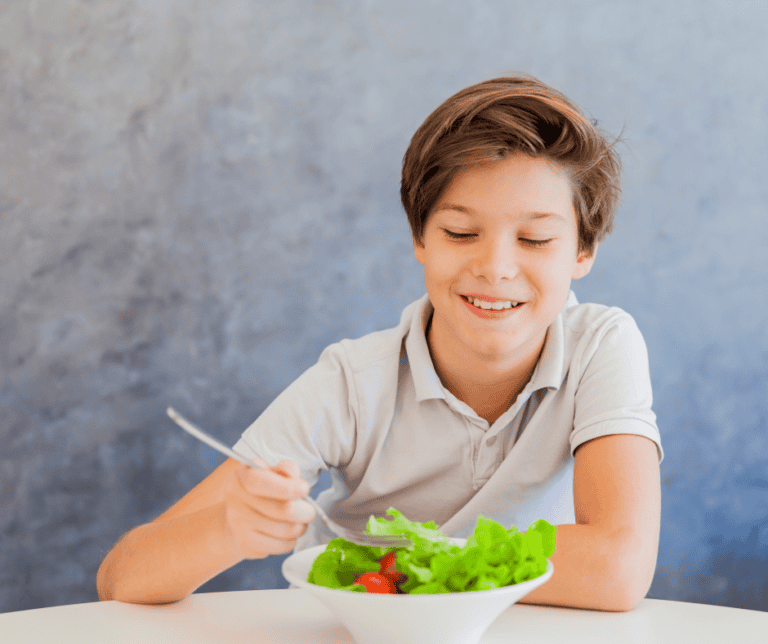Understanding the connection between diet and ADHD symptoms is crucial for managing the condition effectively. This article explores the impact of nutrition on focus and behavior in children with ADHD and offers practical tips for promoting healthy eating habits that can support ADHD management.
The Link Between Nutrition and ADHD
ADHD (Attention Deficit Hyperactivity Disorder) is a neurodevelopmental condition that affects focus, attention, and impulse control. While medication and behavioral therapy are commonly used treatments, research shows that nutrition also plays a vital role in managing ADHD symptoms. Diet can directly impact a child’s brain function, mood, and energy levels, influencing how well they focus and behave.
How Diet Impacts ADHD Symptoms
1. Blood Sugar Levels and Behavior
Maintaining stable blood sugar levels is key to managing impulsivity and hyperactivity in children with ADHD. When blood sugar spikes and crashes—often caused by sugary or highly processed foods—children may experience irritability, lack of focus, and energy dips. Balancing meals with healthy proteins, fats, and complex carbohydrates can help stabilize blood sugar levels, leading to more consistent energy and better focus.
2. Essential Nutrients for Brain Health
The brain requires certain nutrients to function optimally. Nutrients like omega-3 fatty acids, iron, zinc, magnesium, and vitamins (such as B vitamins) are especially important for children with ADHD. These nutrients support brain development, neurotransmitter regulation, and cognitive function.
For example, studies have shown that omega-3 fatty acids, found in foods like fish, flaxseeds, and walnuts, can improve attention and reduce hyperactivity in children with ADHD. Similarly, iron deficiency has been linked to worsening symptoms, so ensuring an adequate intake of iron-rich foods like lean meats, beans, and spinach can help.
3. Food Sensitivities and ADHD
Certain food sensitivities or intolerances may exacerbate ADHD symptoms. Artificial additives, dyes, and preservatives commonly found in processed snacks and drinks can trigger hyperactivity in some children. Additionally, gluten, dairy, and soy sensitivities may contribute to mood swings, irritability, or difficulty concentrating. Monitoring your child’s diet for any patterns between specific foods and changes in behavior can help you identify potential triggers.
Healthy Eating Habits for Children with ADHD
Implementing healthy eating habits can make a significant difference in managing ADHD. Here are some practical tips to support your child’s nutrition:
1. Prioritize Whole Foods
Encourage your child to eat whole, minimally processed foods that are rich in nutrients. Focus on fruits, vegetables, whole grains, lean proteins, and healthy fats. These foods provide essential vitamins and minerals that support brain function and overall health.
2. Include Protein in Every Meal
Protein helps regulate blood sugar and supports neurotransmitter production, both of which are important for children with ADHD. Try to include a source of protein, such as eggs, yogurt, nuts, seeds, or lean meat, in every meal and snack.
3. Avoid Processed Foods and Sugary Drinks
Highly processed foods and sugary beverages can lead to fluctuations in blood sugar, which may worsen ADHD symptoms like impulsivity and difficulty concentrating. Instead, opt for water, herbal teas, or homemade smoothies to keep your child hydrated.
4. Monitor Portions and Timing
Skipping meals or overeating can impact your child’s mood and focus. Establish a regular meal schedule with balanced portions to ensure your child’s body and brain receive the fuel they need throughout the day. This consistency helps regulate energy levels and attention spans.
ADHD-Friendly Foods to Support Focus and Behavior
Incorporating the right foods into your child’s diet can improve focus, reduce hyperactivity, and support overall well-being. Here are some ADHD-friendly food choices:
- Omega-3 Rich Foods: Salmon, mackerel, flaxseeds, chia seeds, walnuts
- Iron-Rich Foods: Spinach, lean beef, lentils, fortified cereals
- Magnesium-Rich Foods: Pumpkin seeds, almonds, dark chocolate, leafy greens
- Zinc-Rich Foods: Chickpeas, cashews, poultry, dairy products
- Vitamin B-Rich Foods: Eggs, whole grains, beans, leafy greens
Creating a Sustainable Nutrition Plan
To successfully incorporate these dietary changes, it’s essential to develop a sustainable plan that fits your family’s lifestyle. Involve your child in meal planning and preparation to make the experience enjoyable and empowering. Keep healthy snacks on hand, and encourage your child to try a variety of nutrient-rich foods.
Consulting with a pediatrician, nutritionist, or dietitian can also provide personalized guidance, especially if you suspect any food sensitivities or need help balancing your child’s nutritional intake.
Final Thoughts
While nutrition is not a cure for ADHD, it can be an important component of a holistic management plan. A diet rich in whole foods and essential nutrients, along with minimizing processed foods and sugary snacks, can help support better focus, behavior, and overall mental health in children with ADHD. By making mindful food choices and establishing healthy eating habits, you can provide your child with a strong foundation for managing ADHD symptoms and improving their quality of life.
Book a discovery call with our team to learn how to transform your child’s relationship with food.






